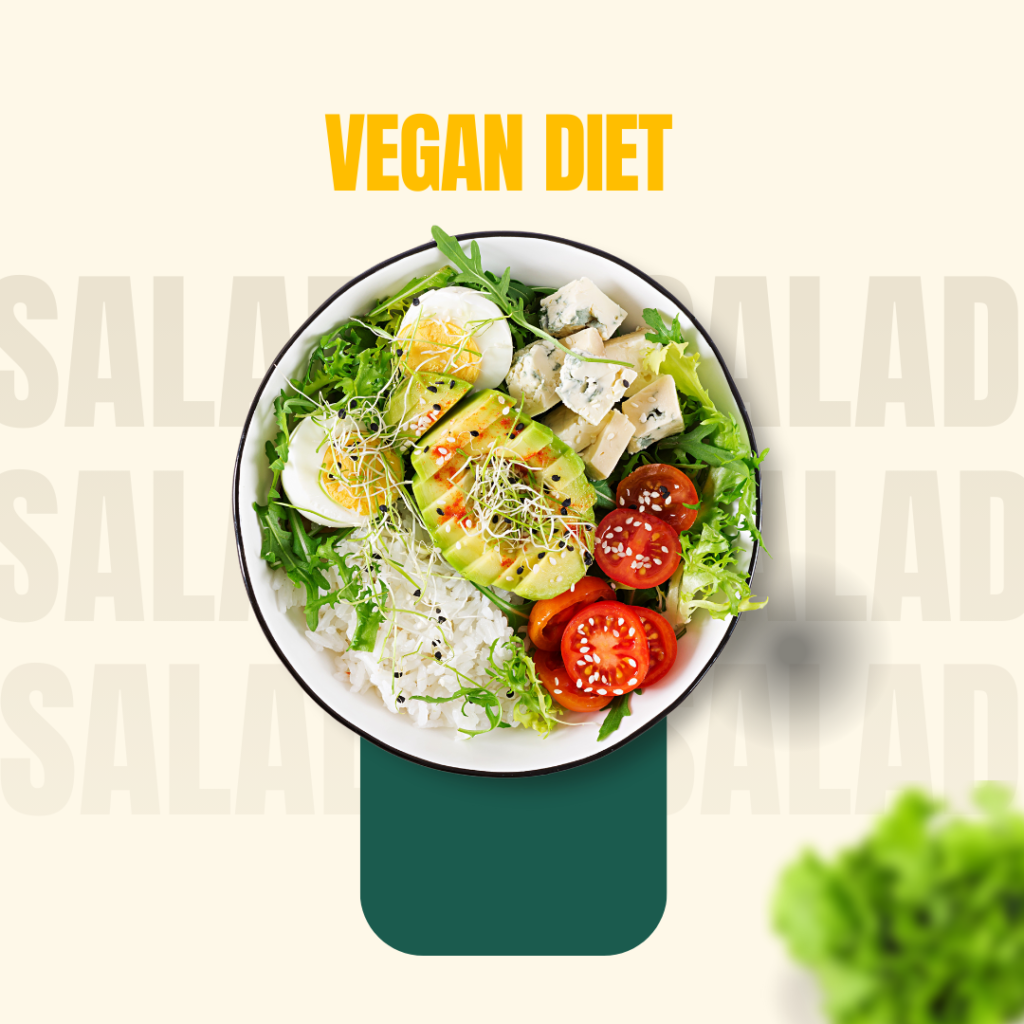In the world of nutrition, two of the most extreme dietary patterns have gained significant attention: the Carnivore Diet and the Vegan Diet. The Carnivore Diet vs. Vegan Diet presents a stark contrast, as one focuses exclusively on animal products, while the other eliminates all animal-derived foods in favor of plant-based nutrition. Both diets claim substantial health benefits, but what does the science say? This article explores the pros, cons, and scientific backing of both diets to help you make an informed decision.
What is the Carnivore Diet?
The Carnivore Diet is an extreme form of low-carb, high-fat eating that consists solely of animal-based foods, including:
- Meat (beef, chicken, pork, lamb, etc.)
- Fish and seafood
- Eggs
- Dairy (butter, cheese, milk)
- Animal fats (lard, tallow, bone marrow)
Science-Backed Benefits of the Carnivore Diet
- Weight Loss & Fat Burning
- A low-carb, high-protein diet can promote fat loss by enhancing satiety and reducing calorie intake.
- The ketogenic effect of the Carnivore Diet shifts the body into fat-burning mode.
- Blood Sugar & Insulin Control
- Eliminating carbohydrates reduces blood sugar spikes and insulin resistance.
- Some studies suggest that a carnivorous approach can be beneficial for individuals with type 2 diabetes.
- Reduced Inflammation
- Some claim that plant-based foods, particularly grains and legumes, can trigger inflammation. By removing these, inflammation-related symptoms may decrease.
- Improved Mental Clarity & Mood Stability
- Many Carnivore Diet advocates report enhanced mental clarity, focus, and reduced brain fog.
- A stable blood sugar level can contribute to improved cognitive function.

Potential Downsides of the Carnivore Diet
- Nutrient Deficiencies
- Lack of fiber, vitamins C, E, and phytochemicals found in plants may lead to deficiencies.
- Gut Health Concerns
- Absence of dietary fiber may negatively impact gut microbiome diversity.
- Heart Health Risks
- High intake of saturated fats may raise cholesterol and cardiovascular disease risk.
- Lack of Long-Term Research
- Scientific studies on the long-term effects of a strict Carnivore Diet are limited.
What is the Vegan Diet?
The Vegan Diet eliminates all animal products and consists solely of plant-based foods such as:
- Fruits and vegetables
- Whole grains
- Legumes (beans, lentils, chickpeas)
- Nuts and seeds
- Plant-based oils (olive oil, coconut oil)
Science-Backed Benefits of the Vegan Diet
- Rich in Essential Nutrients
- High in fiber, antioxidants, and vitamins such as C, E, and K.
- Contains beneficial plant compounds that support overall health.
- Lower Risk of Chronic Diseases
- Studies link vegan diets to a reduced risk of heart disease, hypertension, and certain cancers.
- Plant-based eating is associated with lower LDL cholesterol levels.
- Supports Healthy Weight Management
- Lower calorie density promotes weight loss and prevents obesity.
- Fiber-rich foods increase satiety and reduce overeating.
- Gut Health Benefits
- High fiber intake supports beneficial gut bacteria and improves digestion.
- Environmental and Ethical Considerations
- Reduces greenhouse gas emissions and promotes animal welfare.
Potential Downsides of the Vegan Diet
- Nutrient Deficiencies
- Risk of vitamin B12, iron, omega-3, and protein deficiencies.
- Blood Sugar Spikes
- High intake of carbohydrates from grains and legumes may lead to insulin resistance in some individuals.
- Challenges in Getting Enough Protein
- While plant proteins exist, they are not as bioavailable as animal-based proteins.
- Food Restrictions & Social Challenges
- A strict vegan diet can be difficult to maintain in social settings or while traveling.

Comparing the Carnivore and Vegan Diets
1. Nutritional Balance
- Carnivore: Rich in protein and fat but lacks fiber and some vitamins.
- Vegan: High in fiber and vitamins but may lack complete proteins and essential fatty acids.
2. Impact on Metabolism & Weight Loss
- Carnivore: Promotes fat loss through ketosis.
- Vegan: Supports weight loss due to low-calorie density and high fiber content.
3. Effect on Gut Health
- Carnivore: Lacks fiber, which may affect gut microbiome negatively.
- Vegan: High in fiber, promoting gut health but may cause bloating in some individuals.
4. Heart Health Considerations
- Carnivore: High saturated fat intake may increase cholesterol.
- Vegan: Associated with lower cholesterol and reduced heart disease risk.
5. Long-Term Sustainability
- Carnivore: Can be restrictive and lacks long-term studies.
- Vegan: Sustainable but requires careful planning to meet nutrient needs.
What Does Science Say?
Scientific research supports benefits and drawbacks for both diets. However, no conclusive evidence suggests that one is superior to the other in all aspects. The best diet is often individualized based on genetics, lifestyle, and health goals.
Studies Supporting the Carnivore Diet
- Some evidence suggests that eliminating carbohydrates can improve insulin sensitivity and reduce inflammation.
- High-protein diets have been linked to muscle preservation and fat loss.
Studies Supporting the Vegan Diet
- Long-term studies show lower risks of chronic diseases among plant-based eaters.
- High fiber intake is beneficial for digestion and heart health.
Conclusion: Which Diet is Better?
There is no one-size-fits-all answer. Both diets have pros and cons, and the best diet depends on individual health goals, lifestyle, and sustainability.
- If you prioritize fat loss, blood sugar control, and simplicity, the Carnivore Diet might work.
- If you aim for long-term heart health, gut health, and ethical considerations, the Vegan Diet may be better.
- A balanced approach combining the best of both worlds (e.g., a whole-food, nutrient-dense diet with animal and plant-based foods) may be optimal.
What do you think? Would you try the Carnivore or Vegan Diet? Let us know your thoughts!
